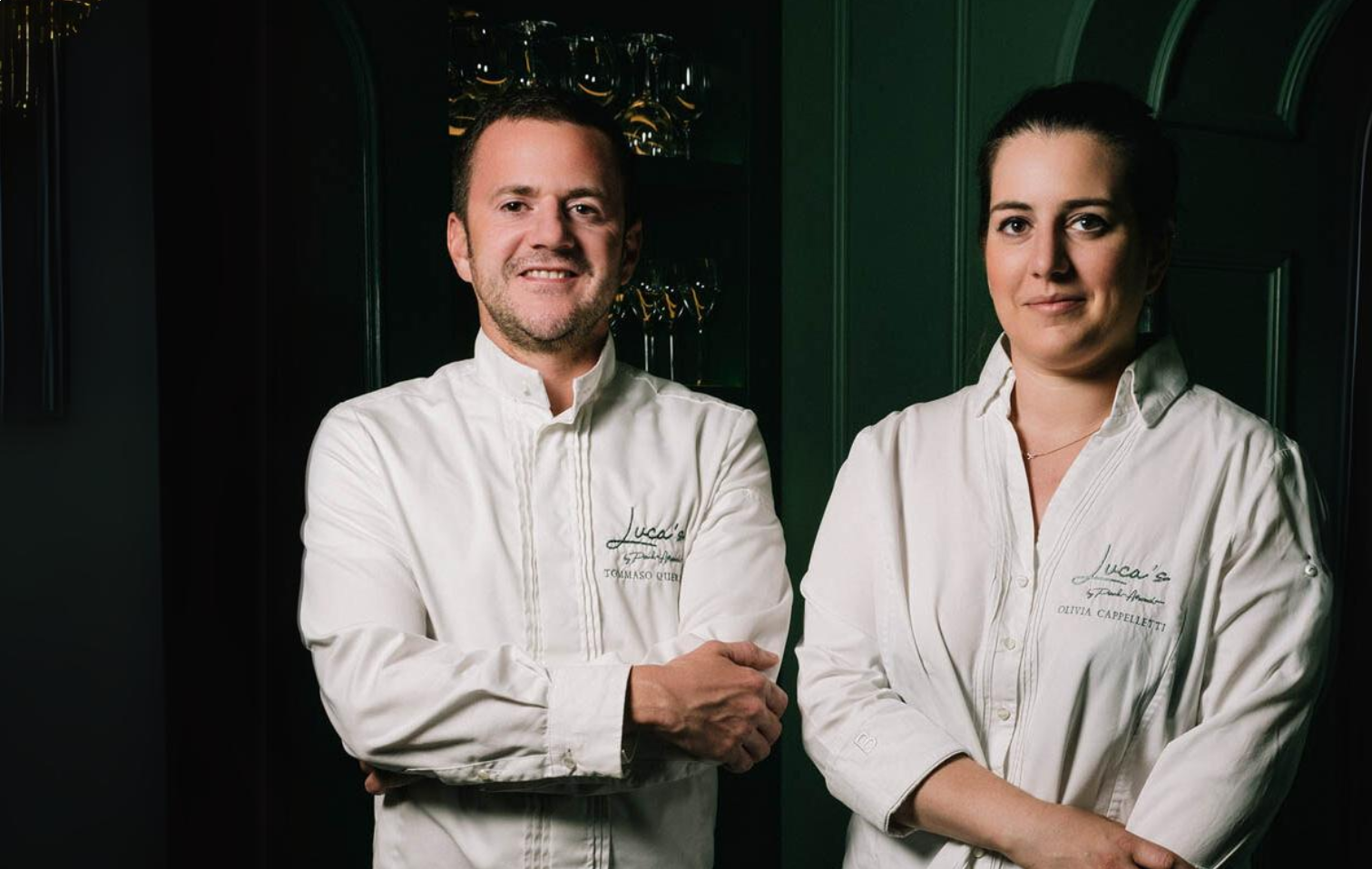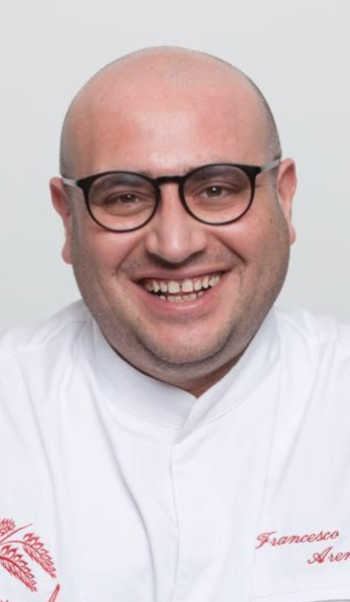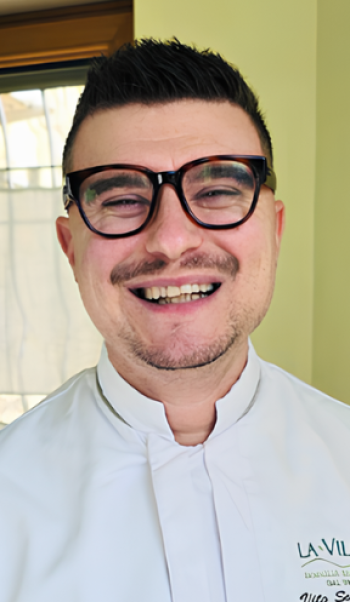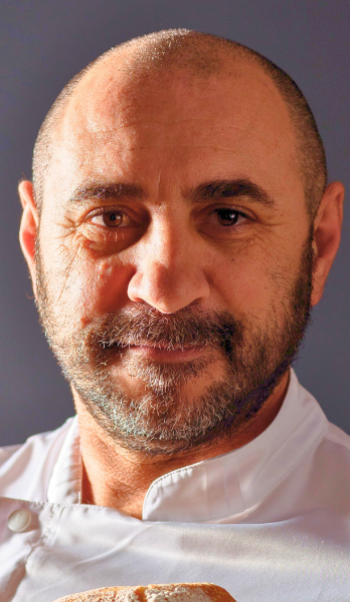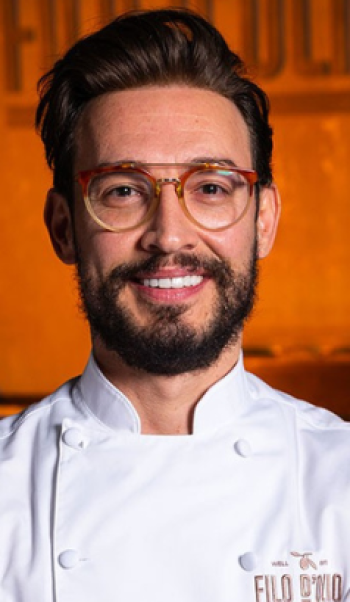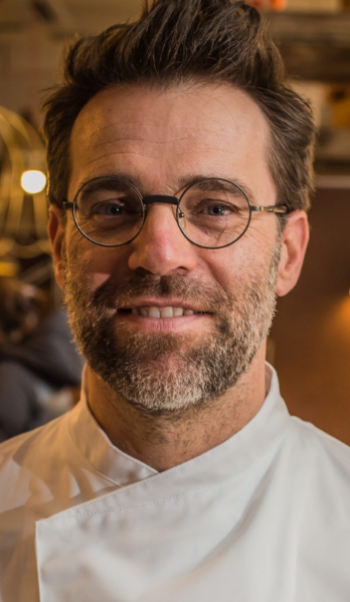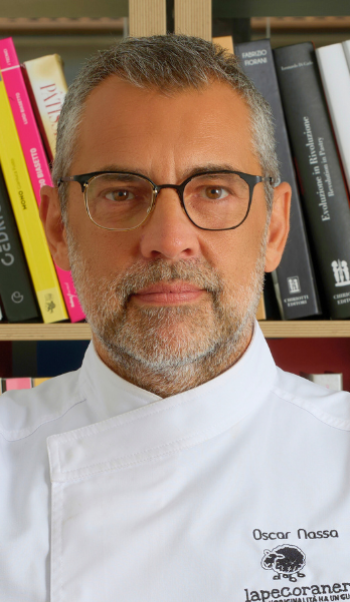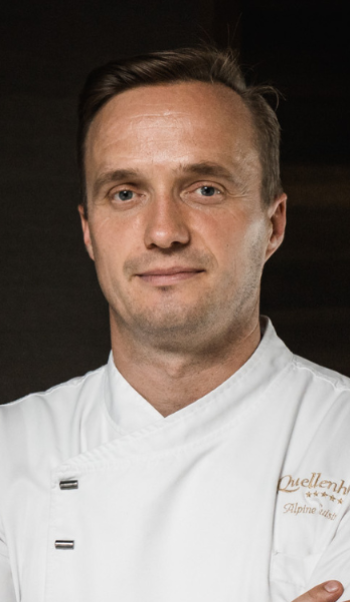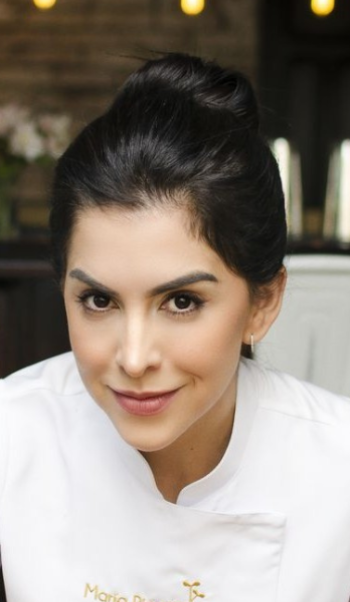Tommaso Querini and Olivia Cappelletti are the resident chefs at Luca's in Florence, renowned for their creative cuisine that blends Italian tradition with contemporary innovation. With a particular focus on local and seasonal ingredients, the two chefs have transformed Luca's into a culinary destination of excellence.
The Biography
Tommaso Querini and Olivia Cappelletti, both born in 1989, have developed a love for cooking from a young age, inspired by their families' culinary traditions. Querini began his training at the Cordon Bleu in Florence after high school and continued working in high-end restaurants. Cappelletti, on the other hand, initially pursued law studies before switching to a culinary career. She completed a professional pastry course at Cast Alimenti in Brescia and gained experience at La Bottega del Buon Caffè and other prestigious restaurants, honing her culinary skills.
In 2021, Olivia and Tommaso were selected by the renowned chef Paulo Airaudo to join the Gemma Hotel project and Luca's restaurant, where they share the role of Resident Chef. Here, they have created an environment where Italian culinary tradition meets modern innovation, offering dishes that highlight the authentic flavors of local ingredients. Luca's restaurant has been featured in several prestigious gastronomic guides and has received praise from critics for the quality and originality of its dishes, in November 2025, it enters the Michelin Guide with its first star.
Some of their most celebrated creations include homemade Cappelletto filled with pigeon, dishes that combine authentic flavors with elegant presentation. Their approach to cooking is characterized by a constant search for new techniques and flavor combinations, always maintaining a deep respect for Italian traditions. Paulo Airaudo stays in close contact with the two resident chefs, ensuring a seamless collaboration on dish development and more. “The menu is entirely his creation: an internationally creative cuisine, backed by extensive research and ideas, always straightforward and easy to interpret for everyone,” assures Olivia. “Because we know it well, we can reproduce it, even though over time, it has shifted from Nordic influences to Oriental contaminations.”
